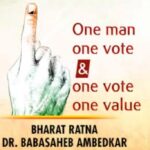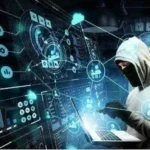Democracy thrives on a simple yet powerful principle — One Man One Vote. This idea ensures that every citizen’s voice carries equal weight, regardless of social class, economic status, caste, religion, or political affiliation. It’s the cornerstone of free and fair elections, giving legitimacy to governments and ensuring public trust in the system.
However, in many parts of the world, including India, this principle is threatened by Vote Chori — a term that literally means vote theft. Vote Chori can take many forms: ballot tampering, voter impersonation, booth capturing, vote buying, or manipulating voter rolls.
The only real defense against these threats is grassroots awareness — when ordinary citizens, local communities, and civil society take responsibility to protect their votes and the sanctity of elections.
In this article, we’ll explore what One Man One Vote truly means, how Vote Chori happens, and what grassroots strategies can effectively safeguard our democracy.
What is “One Man One Vote”?
The concept emerged from the struggle for universal suffrage — the right for every adult citizen to vote regardless of property, race, gender, or literacy. It means:
Equality: Each person’s vote has the same value.
Non-discrimination: No citizen is given more or less voting power.
Democratic legitimacy: Governments are formed based on genuine public choice.
When this principle is compromised, democracy loses its foundation.
Understanding “Vote Chori”
Vote Chori is not just a political crime; it’s a direct attack on democracy. Common methods include:
1. Booth Capturing
Goons physically take over a polling booth, cast votes illegally, and prevent genuine voters from exercising their rights.
2. Fake Voting / Voter Impersonation
Someone votes using another person’s name from the electoral roll.
3. Electoral Roll Manipulation
Deleting legitimate names or adding fake ones to influence results.
4. Vote Buying
Offering cash, liquor, or goods in exchange for votes.
5. Tampering with EVMs / Ballot Boxes
Altering electronic voting machines or stuffing ballot boxes with fake votes.
6. Threats and Intimidation
Scaring voters away from booths through violence or coercion.
Why Grassroots Awareness is the Key
While laws, the Election Commission, and security forces play an important role, real change happens at the community level.
Grassroots awareness ensures that:
People understand their voting rights.
Citizens recognize Vote Chori tactics.
Communities develop systems to monitor elections.
Local leaders mobilize action against fraud.
A well-informed community can prevent manipulation far more effectively than a distant authority alone.
Grassroots Strategies to Protect One Man One Vote from Vote Chori
1. Voter Education Campaigns
Organize local workshops explaining voting rights and procedures.
Distribute simple, multilingual pamphlets describing how to detect fraud.
Use street plays, folk songs, and local influencers to reach rural areas.
2. Strengthening Voter ID Verification
Encourage every voter to check their Voter ID and electoral roll details months before elections.
Mobilize volunteers to help citizens correct errors in voter lists.
3. Training Polling Agents and Volunteers
Every party or independent candidate should train polling agents to spot irregularities.
Community-based observers should be stationed near booths to report suspicious activity.
4. Using Technology for Transparency
Promote mobile apps for reporting election malpractice.
Use WhatsApp groups or SMS alerts for quick communication in case of suspicious activity.
5. Community Vigilance Groups
Form local vigilance committees to monitor political campaigning, especially near election day.
Ensure volunteers are present at polling stations to assist elderly and first-time voters.
6. Collaboration with Election Authorities
Share ground-level intelligence with Election Commission officers.
Submit formal complaints with evidence — photos, videos, or eyewitness accounts.
7. Social Media Awareness Drives
Use Facebook, Instagram, and Twitter to highlight citizens’ rights.
Run hashtags campaigns like
#OneManOneVoteand#StopVoteChori.
Challenges in Fighting Vote Chori
Fear of retaliation: Many voters fear physical harm if they speak up.
Lack of legal awareness: Citizens may not know how to file a complaint.
Political interference: Local authorities sometimes act under political pressure.
Low voter turnout: Apathy makes it easier for fraud to influence results.
Case Studies
Case 1: Community-Led Booth Protection in Bihar
In one rural district, villagers formed a “Booth Raksha Samiti”. Volunteers stayed near polling stations, helped voters find their names, and reported every suspicious movement to election officials. Result: Highest voter turnout in 20 years, zero reported incidents of booth capturing.
Case 2: Tech-Enabled Monitoring in Kerala
A local NGO trained youth volunteers to use a simple Android app to geotag and report electoral violations in real-time. This data was shared with the Election Commission, which acted immediately to prevent fraud.
Legal Safeguards Against Vote Chori
Indian law has strict provisions:
Representation of the People Act, 1951 – Penalizes electoral fraud, impersonation, and bribery.
Indian Penal Code Sections 171A–171F – Criminalizes election offences.
Election Commission of India Guidelines – Include model code of conduct and polling security measures.
However, enforcement depends heavily on public cooperation and reporting.
The Role of Youth in Protecting Democracy
Young voters are digital natives — they can play a huge role by:
Running online awareness campaigns.
Volunteering as election monitors.
Educating peers about voting rights in schools and colleges.
Action Plan for Citizens
Before Elections
Verify your name on the electoral roll.
Attend community voter awareness sessions.
Watch for illegal campaigning.
On Election Day
Carry proper identification.
Encourage others to vote early to avoid crowding and intimidation.
Report any suspicious activity to the booth officer or Election Commission helpline.
After Elections
Follow up on complaints filed.
Participate in post-election public audits.
Final Thoughts
The fight to protect One Man One Vote from Vote Chori is not just the responsibility of the Election Commission or political parties — it’s a collective mission. Grassroots awareness ensures that every citizen becomes a watchdog of democracy.
From local workshops to tech-enabled vigilance, every action counts. When communities are informed, united, and proactive, vote thieves lose their power. In the end, democracy is strongest when the people protect it themselves.
Your vote is your voice — never let it be stolen.
Related posts:
 How Vote Chori Undermines the Spirit of One Man One Vote
How Vote Chori Undermines the Spirit of One Man One Vote
 Real-Life Cyberattacks: Lessons and Remedies to Protect Your Digital World
Real-Life Cyberattacks: Lessons and Remedies to Protect Your Digital World
 How to Protect Your Laptop from Cyber Attacks
How to Protect Your Laptop from Cyber Attacks
 Unlock the Power of Thought with “As a Man Thinketh”
Unlock the Power of Thought with “As a Man Thinketh”
 Teaching Kids Cybersecurity in the Digital Age: Essential Tips for Parents
Teaching Kids Cybersecurity in the Digital Age: Essential Tips for Parents
 Unlocking the Secrets of Sleep: How Sleep Physiology Shapes Brain Function
Unlocking the Secrets of Sleep: How Sleep Physiology Shapes Brain Function
